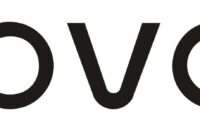Studies Showed Sustained Reduction in LDL-C With no new Safety Findings
The Combined Studies Evaluated Safety and Tolerability of Repatha in More Than 6,600 Patients for Over Five Years After Completing the Phase 3 FOURIER Trial
Repatha is the Longest Studied PCSK9i
THOUSAND OAKS, Calif., April 27, 2022 /PRNewswire/ — Amgen (NASDAQ:AMGN) today announced top-line results from two Repatha® (evolocumab) open label extension (OLE) studies to the Phase 3 FOURIER cardiovascular outcomes trial. The studies were designed to assess the long-term safety and tolerability of Repatha over five years in adults with clinically evident atherosclerotic cardiovascular disease.
The FOURIER-OLE (Further cardiovascular OUtcomes Research with PCSK9 Inhibition in Subjects with Elevated – Risk-Open Label Extension) studies were composed of study 20130295 (NCT02867813) with 5,035 patients enrolled in Eastern Europe and the United States and study 20160250 (NCT03080935) with 1,600 patients enrolled in Western Europe. Both studies showed that Repatha, administered at 140 mg every two weeks or 420 mg monthly, was safe and well-tolerated. In the OLE studies, patients received Repatha for approximately 5 years, with some patients receiving Repatha for up to 8 1/2 years in aggregate across the FOURIER and OLE studies. No new long-term safety findings were observed.
In addition, medically significant and sustained reduction in low-density lipoprotein cholesterol (LDL-C) levels were observed, with more than 85 percent of patients achieving an LDL-C level of <40 mg/dL during the OLE period.
“The combined results from these studies reinforce the well-established safety profile of Repatha with long-term use in lowering LDL-C,” said David M. Reese, M.D., executive vice president of Research and Development at Amgen. “As the PCSK9i leader, with more than one million patients worldwide who have received Repatha, we are extremely encouraged by the sustained benefit of this effective medicine for patients with cardiovascular disease who still struggle to get their LDL-C level below recommended goals.”
Other study measures included exploratory analyses of non-high-density lipoprotein cholesterol, apolipoprotein B, total cholesterol, Lipoprotein(a), triglycerides, high-density lipoprotein cholesterol, very-low-density lipoprotein cholesterol, and apolipoprotein A-1 levels, as well as cardiovascular events of interest.
Detailed study results will be shared with regulatory authorities and submitted for presentation at an upcoming medical congress later this year. Prolonged LDL-C reduction with Repatha is also being studied in the ongoing VESALIUS-CV (NCT03872401) outcomes trial.
Repatha® Cardiovascular Open-Label Extension (FOURIER-OLE) Study Design
FOURIER (20110118) was a randomized placebo-controlled study of evolocumab, in patients with clinically evident atherosclerotic CVD on stable effective statin therapy. FOURIER-OLE (Further cardiovascular OUtcomes Research with PCSK9 Inhibition in Subjects with Elevated – Risk-Open Label Extension) were multicenter, open-label extension (OLE) studies designed to assess the extended long-term safety of evolocumab in subjects who completed the FOURIER study (20110118). The FOURIER-OLE is composed of studies 20130295 and 20160250, which enrolled 5,035 and 1,600 subjects who completed FOURIER study (20110118) to receive open-label evolocumab and were followed up for a median of 5 and 4.6 years, respectively.
PROFICIO Program
FOURIER is part of Amgen’s PROFICIO (Program to Reduce LDL-C and cardiovascular Outcomes Following Inhibition of PCSK9 In different pOpulations) program of clinical studies investigating the impact of Repatha® on LDL-C and CVD across multiple populations at high CV risk, including those managed by statins, statin-intolerant patients, those with genetic disorders and patients with atherosclerosis. To date, the PROFICIO program consists of 36 trials including more than 38,000 patients worldwide.
About Amgen
Amgen is committed to unlocking the potential of biology for patients suffering from serious illnesses by discovering, developing, manufacturing and delivering innovative human therapeutics. This approach begins by using tools like advanced human genetics to unravel the complexities of disease and understand the fundamentals of human biology.
Amgen focuses on areas of high unmet medical need and leverages its expertise to strive for solutions that improve health outcomes and dramatically improve people’s lives. A biotechnology pioneer since 1980, Amgen has grown to be one of the world’s leading independent biotechnology companies, has reached millions of patients around the world and is developing a pipeline of medicines with breakaway potential.
Amgen is one of the 30 companies that comprise the Dow Jones Industrial Average and is also part of the Nasdaq-100 index. In 2021, Amgen was named one of the 25 World’s Best Workplaces™ by Fortune and Great Place to Work™ and one of the 100 most sustainable companies in the world by Barron’s.
For more information, visit www.amgen.com and follow us on www.twitter.com/amgen.
About Repatha® (evolocumab)
Repatha® is a human monoclonal antibody that inhibits proprotein convertase subtilisin/kexin type 9 (PCSK9). Repatha® binds to PCSK9 and inhibits circulating PCSK9 from binding to the low-density lipoprotein (LDL) receptor (LDLR), preventing PCSK9-mediated LDLR degradation and permitting LDLR to recycle back to the liver cell surface. By inhibiting the binding of PCSK9 to LDLR, Repatha® increases the number of LDLRs available to clear LDL from the blood, thereby lowering LDL-C levels.
Repatha® is approved in more than 75 countries, including the U.S., Japan, Canada and in all 28 countries that are members of the European Union. Applications in other countries are pending.
INDICATIONS
Repatha® is indicated:
- In adults with established cardiovascular disease to reduce the risk of myocardial infarction, stroke, and coronary revascularization
- As an adjunct to diet, alone or in combination with other low-density lipoprotein cholesterol (LDLC)-lowering therapies, in adults with primary hyperlipidemia, including heterozygous familial hypercholesterolemia (HeFH), to reduce LDL-C
- As an adjunct to diet and other LDL-C-lowering therapies in pediatric patients aged 10 years and older with HeFH, to reduce LDL-C
- As an adjunct to other LDL-C-lowering therapies in adults and pediatric patients aged 10 years and older with homozygous familial hypercholesterolemia (HoFH), to reduce LDL-C
The safety and effectiveness of Repatha® have not been established in pediatric patients with HeFH or HoFH who are younger than 10 years old or in pediatric patients with other types of hyperlipidemia.
IMPORTANT SAFETY INFORMATION
Contraindication: Repatha® is contraindicated in patients with a history of a serious hypersensitivity reaction to evolocumab or any of the excipients in Repatha®. Serious hypersensitivity reactions including angioedema have occurred in patients treated with Repatha®.
Hypersensitivity Reactions: Hypersensitivity reactions, including angioedema, have been reported in patients treated with Repatha®. If signs or symptoms of serious hypersensitivity reactions occur, discontinue treatment with Repatha®, treat according to the standard of care, and monitor until signs and symptoms resolve.
Adverse Reactions in Adults with Primary Hyperlipidemia: The most common adverse reactions (>5% of patients treated with Repatha® and more frequently than placebo) were: nasopharyngitis, upper respiratory tract infection, influenza, back pain, and injection site reactions.
From a pool of the 52-week trial and seven 12-week trials: Local injection site reactions occurred in 3.2% and 3.0% of Repatha®-treated and placebo-treated patients, respectively. The most common injection site reactions were erythema, pain, and bruising. Hypersensitivity reactions occurred in 5.1% and 4.7% of Repatha®-treated and placebo-treated patients, respectively. The most common hypersensitivity reactions were rash (1.0% versus 0.5% for Repatha® and placebo, respectively), eczema (0.4% versus 0.2%), erythema (0.4% versus 0.2%), and urticaria (0.4% versus 0.1%).
Adverse Reactions in the Cardiovascular Outcomes Trial: The most common adverse reactions (>5% of patients treated with Repatha® and more frequently than placebo) were: diabetes mellitus (8.8% Repatha®, 8.2% placebo), nasopharyngitis (7.8% Repatha®, 7.4% placebo), and upper respiratory tract infection (5.1% Repatha®, 4.8% placebo).
Among the 16,676 patients without diabetes mellitus at baseline, the incidence of new-onset diabetes mellitus during the trial was 8.1% in patients treated with Repatha® compared with 7.7% in patients that received placebo.
Adverse Reactions in Pediatric Patients with HeFH: The most common adverse reactions (>5% of patients treated with Repatha® and more frequently than placebo) were: nasopharyngitis, headache, oropharyngeal pain, influenza, and upper respiratory tract infection.
Adverse Reactions in Adults and Pediatric Patients with HoFH: In a 12-week study in 49 patients, the adverse reactions that occurred in at least two patients treated with Repatha® and more frequently than placebo were: upper respiratory tract infection, influenza, gastroenteritis, and nasopharyngitis. In an open-label extension study in 106 patients, including 14 pediatric patients, no new adverse reactions were observed.
Immunogenicity: Repatha® is a human monoclonal antibody. As with all therapeutic proteins, there is potential for immunogenicity with Repatha®.Please contact Amgen Medinfo at 800-77-AMGEN (800-772-6436) or 844-REPATHA (844-737-2842) regarding Repatha® availability or find more information, including full Prescribing Information, at www.amgen.com and www.Repatha.com.
Amgen Forward-Looking Statements
This news release contains forward-looking statements that are based on the current expectations and beliefs of Amgen. All statements, other than statements of historical fact, are statements that could be deemed forward-looking statements, including any statements on the outcome, benefits and synergies of collaborations, or potential collaborations, with any other company (including BeiGene, Ltd., Kyowa-Kirin Co., Ltd., or any collaboration to manufacture therapeutic antibodies against COVID-19), the performance of Otezla® (apremilast) (including anticipated Otezla sales growth and the timing of non-GAAP EPS accretion), the Five Prime Therapeutics, Inc. acquisition, or the Teneobio, Inc. acquisition, as well as estimates of revenues, operating margins, capital expenditures, cash, other financial metrics, expected legal, arbitration, political, regulatory or clinical results or practices, customer and prescriber patterns or practices, reimbursement activities and outcomes, effects of pandemics or other widespread health problems such as the ongoing COVID-19 pandemic on our business, and other such estimates and results. Forward-looking statements involve significant risks and uncertainties, including those discussed below and more fully described in the Securities and Exchange Commission reports filed by Amgen, including our most recent annual report on Form 10-K and any subsequent periodic reports on Form 10-Q and current reports on Form 8-K. Unless otherwise noted, Amgen is providing this information as of the date of this news release and does not undertake any obligation to update any forward-looking statements contained in this document as a result of new information, future events or otherwise.
No forward-looking statement can be guaranteed and actual results may differ materially from those we project. Our results may be affected by our ability to successfully market both new and existing products domestically and internationally, clinical and regulatory developments involving current and future products, sales growth of recently launched products, competition from other products including biosimilars, difficulties or delays in manufacturing our products and global economic conditions. In addition, sales of our products are affected by pricing pressure, political and public scrutiny and reimbursement policies imposed by third-party payers, including governments, private insurance plans and managed care providers and may be affected by regulatory, clinical and guideline developments and domestic and international trends toward managed care and healthcare cost containment. Furthermore, our research, testing, pricing, marketing and other operations are subject to extensive regulation by domestic and foreign government regulatory authorities. We or others could identify safety, side effects or manufacturing problems with our products, including our devices, after they are on the market. Our business may be impacted by government investigations, litigation and product liability claims. In addition, our business may be impacted by the adoption of new tax legislation or exposure to additional tax liabilities. If we fail to meet the compliance obligations in the corporate integrity agreement between us and the U.S. government, we could become subject to significant sanctions. Further, while we routinely obtain patents for our products and technology, the protection offered by our patents and patent applications may be challenged, invalidated or circumvented by our competitors, or we may fail to prevail in present and future intellectual property litigation. We perform a substantial amount of our commercial manufacturing activities at a few key facilities, including in Puerto Rico, and also depend on third parties for a portion of our manufacturing activities, and limits on supply may constrain sales of certain of our current products and product candidate development. An outbreak of disease or similar public health threat, such as COVID-19, and the public and governmental effort to mitigate against the spread of such disease, could have a significant adverse effect on the supply of materials for our manufacturing activities, the distribution of our products, the commercialization of our product candidates, and our clinical trial operations, and any such events may have a material adverse effect on our product development, product sales, business and results of operations. We rely on collaborations with third parties for the development of some of our product candidates and for the commercialization and sales of some of our commercial products. In addition, we compete with other companies with respect to many of our marketed products as well as for the discovery and development of new products. Discovery or identification of new product candidates or development of new indications for existing products cannot be guaranteed and movement from concept to product is uncertain; consequently, there can be no guarantee that any particular product candidate or development of a new indication for an existing product will be successful and become a commercial product. Further, some raw materials, medical devices and component parts for our products are supplied by sole third-party suppliers. Certain of our distributors, customers and payers have substantial purchasing leverage in their dealings with us. The discovery of significant problems with a product similar to one of our products that implicate an entire class of products could have a material adverse effect on sales of the affected products and on our business and results of operations. Our efforts to collaborate with or acquire other companies, products or technology, and to integrate the operations of companies or to support the products or technology we have acquired, may not be successful. A breakdown, cyberattack or information security breach could compromise the confidentiality, integrity and availability of our systems and our data. Our stock price is volatile and may be affected by a number of events. Our business and operations may be negatively affected by the failure, or perceived failure, of achieving our environmental, social and governance objectives. The effects of global climate change and related natural disasters could negatively affect our business and operations. Global economic conditions may magnify certain risks that affect our business. Our business performance could affect or limit the ability of our Board of Directors to declare a dividend or our ability to pay a dividend or repurchase our common stock. We may not be able to access the capital and credit markets on terms that are favorable to us, or at all.
CONTACT: Amgen, Thousand Oaks
Michael Strapazon, 805-313-5553 (media)
Jessica Akopyan, 805-440-5721 (media)
Arvind Sood, 805-447-1060 (investors)
SOURCE Amgen






